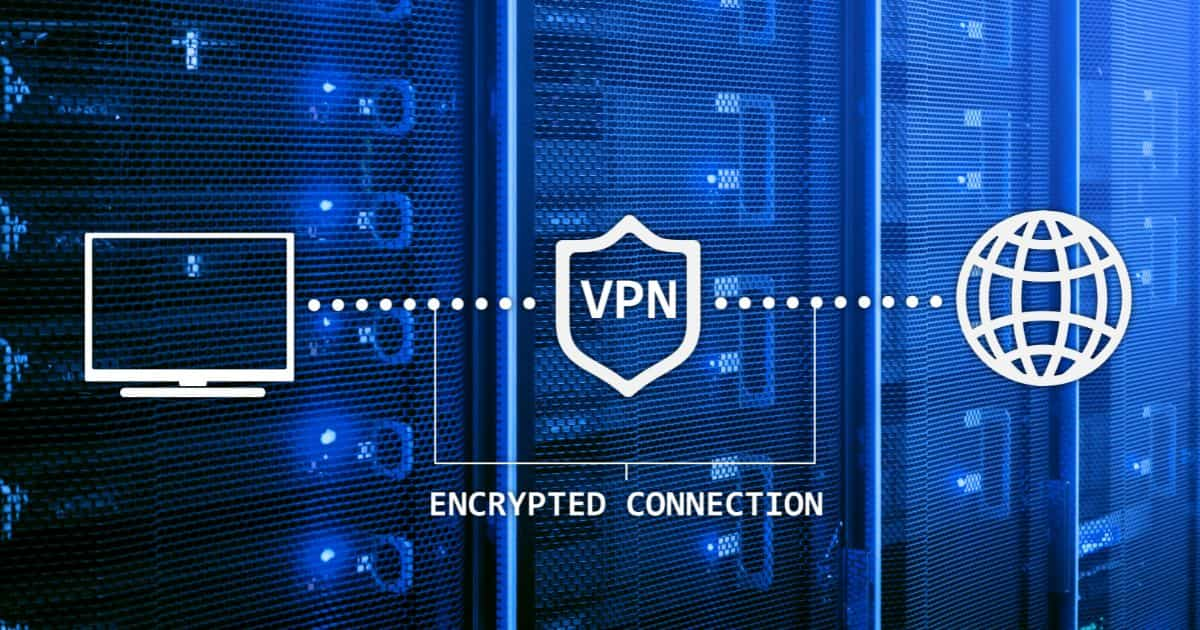A VPN, or Virtual Private Network, is a tool that can be used to improve your online privacy and security. When you connect to the internet through a VPN, your traffic is encrypted and routed through a server in another location. This makes it difficult for anyone to track your activity or intercept your data.
When you're using a VPN, you want to know that your data is being protected. But which process is used to protect transmitted data in a VPN? In this post, we'll take a look at the different security measures used in VPNs and explain how they work together to keep your data safe. Read on to learn more!
Which Process Is Used to Protect Transmitted Data in a VPN?
A VPN, or Virtual Private Network, is a secure connection between two or more devices. This connection is made possible by using an encrypted tunnel to transmit data. By encrypting data before it is sent, VPNs protect information from being accessed by unauthorized parties.
When you transmit data using a VPN, the process of encryption will help protect your data. The data will be transferred into an unreadable format that can only be decoded with a special key. This ensures that only authorized individuals will be able to access the information.
In addition, the process of tunneling will create a private secure connection between your computer and the VPN server. This tunnel will route all of your data through an encrypted path, further protecting your information.Types of VPN Encryption: Symmetric vs. Asymmetric

VPN encryption is a process of scrambling data so that only the intended recipient can unscramble and read it. When it comes to VPN encryption, there are two main types: symmetric and asymmetric.
Symmetric encryption uses the same key for both encrypting and decrypting data, while asymmetric encryption uses different keys for each process. Both methods have their advantages and disadvantages, so it's important to choose the right one for your needs.
Symmetric encryption is faster and more efficient than asymmetric encryption, but it also has some security risks. If the key is compromised, anyone with access to it can decrypt the data. As a result, symmetric encryption is best used for short-term or internal data transfers.
Asymmetric encryption is more secure than symmetric encryption, but it is also slower and more resource-intensive. Because each key is unique, there is no risk of data being decrypted if the key is compromised.
This also means that each data transfer requires its own set of keys, which can make the process slower and more complicated. As a result, asymmetric encryption is best used for long-term or external data transfers.
How Does VPN Tunneling Work?
Essentially, a VPN tunnel is a secure connection between two devices that uses encryption to keep data private. When you connect to a VPN server, your traffic is routed through the tunnel, which makes it difficult for anyone to snoop on your activities.
Many VPN providers offer additional features like IP masking and DNS leak protection to further protect your privacy.
There are a variety of VPN tunnel types that exist to allow organizations to securely connect to remote resources. The most common tunnel types are IPSec, L2TP, PPTP, SSL, and OpenVPN.
IPSec tunnels are very secure but can be difficult to configure. L2TP tunnels are easier to set up than IPSec but are not as secure. PPTP tunnels are fast and easy to set up but are not as secure as other tunnel types.
SSL tunnels are very secure but can be slow. OpenVPN tunnels are the most secure and fastest tunnel type but can be more difficult to set up.
VPN tunnels can be used to connect two devices that are not on the same network, or they can be used to connect two devices on the same network but with different security requirements.
For example, a VPN tunnel could be used to connect a laptop to a company's internal network so that the user could access site resources that are not available externally.
Which Tunneling Protocol Is the Most Secure?
Open VPN is a tunneling protocol that uses SSL/TLS for security. It is generally considered to be more secure than other tunneling protocols because it uses open-source technology, which allows for greater scrutiny and audit by the community.
In addition, Open VPN is less vulnerable to attacks than other protocols because it uses a more robust authentication mechanism. As a result, it is often the preferred choice for businesses and individuals who are seeking a high level of security for their data.
What is VPN Split Tunneling?
VPN split tunneling is a technique that allows a user to send some traffic through a VPN tunnel while other traffic bypasses the tunnel. This can be useful in a number of scenarios, such as when a user wants to access local resources while still encrypting their internet traffic.
Split-tunneling can also be used to reduce the load on a VPN server by routing only the traffic that needs to be encrypted.
To use split tunneling, a user must first establish a VPN connection. Once the connection is established, the user can then choose which traffic to route through the VPN tunnel and which to send directly to the internet. In most cases, split-tunneling is transparent to the end user and requires no configuration. However, some VPN providers may require users to manually configure their devices to use split-tunneling.
Final Thoughts
VPNs provide a secure and convenient way to connect to the internet, but how do they work, and which process is used to protect transmitted data in a VPN? VPNs use a process called encryption to protect your data as it travels from your device to the VPN server.
Encryption is a process of transforming readable data into an unreadable format. This ensures that anyone who intercepts your data will not be able to read it.
In addition to encryption, VPNs also use a process called tunneling to further protect your data. Tunneling creates a private “tunnel” between your device and the VPN server, making it even more difficult for someone to intercept and read your data. Together, these two processes make VPNs an essential tool for protecting your data when you are online.
- IPSec vs. OpenVPN: Which Is Better? - December 10, 2022
- How to Turn Off VPN on Mac: A Step-by-Step Guide - December 10, 2022
- What Is a VPN Concentrator and What Does It Do? - December 10, 2022





